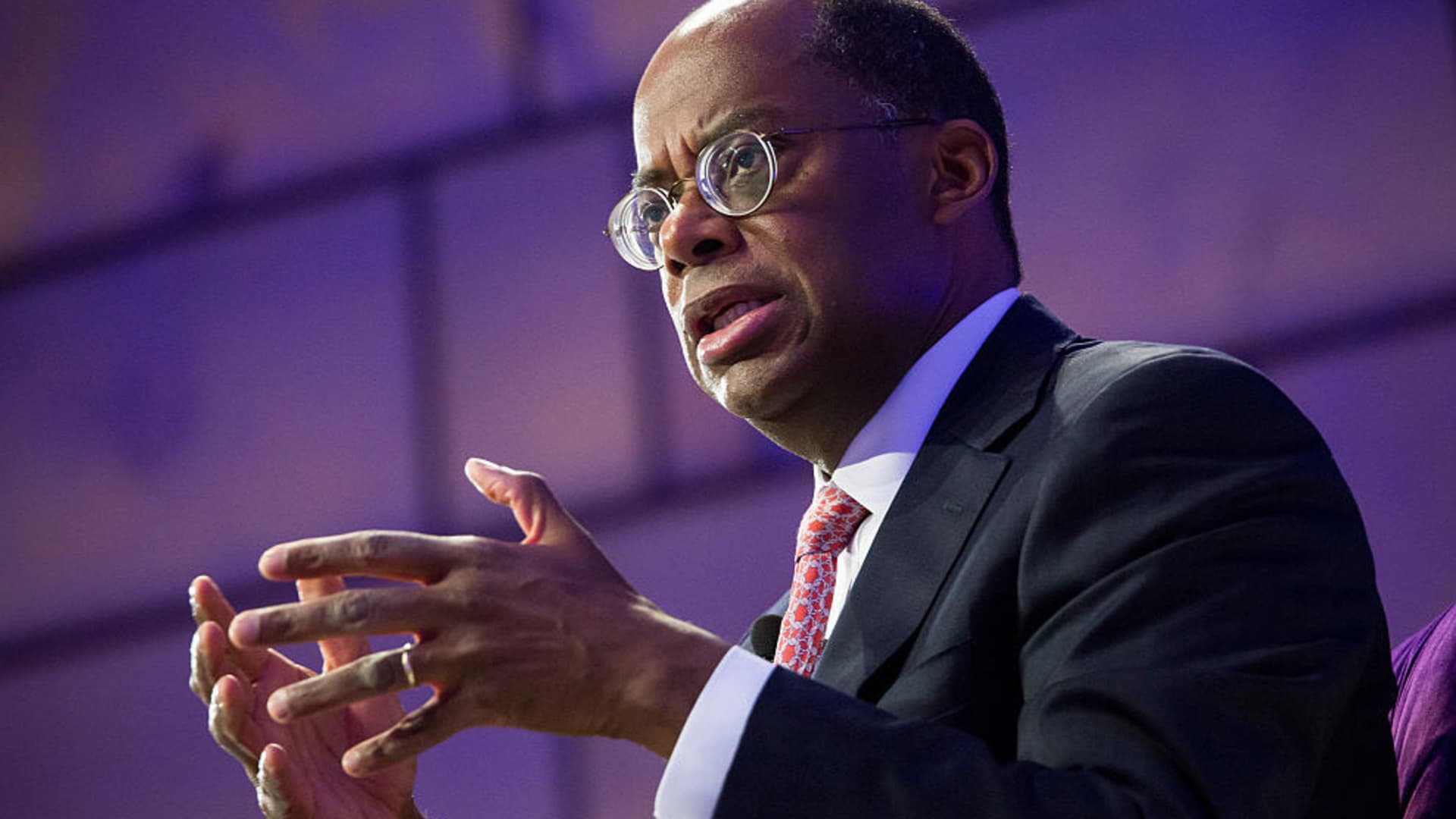
Roger Ferguson
Michael Nagle | Bloomberg | Getty Images
Anyone who read a Fed chair coining the term “soft-ish” for an economic landing, as Jerome Powell did on Wednesday, as a bullish signal, has a transitory understanding of how much significance to give to any single day’s trading action. Stocks tanked on Thursday after the relief rally, giving up all of the post-FOMC meeting gains, and more, on pace for the worst day of 2022 for stocks.
Now back to the rougher economic reality, on Main Street, small business owners likely weren’t fooled by the market head fake at all. They have a sobering view of the rest of 2022. More than 80% of small business owners tell CNBC that a recession will hit the U.S. economy this year. The primary business issue they are facing is inflation, which is driving up prices they pay for raw goods and other inputs, while they are growing increasingly fearful about passing along more price increases to the consumer.
The Fed’s battle with inflation is not one that Main Street has much confidence in right now. Just 27% of small business owners are confident in the Federal Reserve’s ability to control inflation, according to the just-released CNBC|SurveyMonkey Small Business Survey for Q2 2022, while 70% say the current Fed rate hike plans will have a negative impact on their business over the next six months.
For Roger Ferguson, a former Fed vice chair and former head of investing giant TIAA, the Fed is doing what it can, but it can only do so much, and the downturn in market and economic sentiment won’t reverse quickly. He recently told CNBC the risk of recession is very high.
The reasons for inflation, including the supply chain disruptions, geopolitical shocks from the Russian war in Ukraine, and the strong demand from consumers in the U.S. fueled by pandemic fiscal and monetary policy, can be mitigated by a Fed that is raising rates, but not entirely controlled.
Even the Fed’s forecast suggests inflation above 2% for at least a couple of more years, Ferguson, who is now vice chair at The Business Council and a distinguished fellow for International Economics at the Council on Foreign Relations, told the CNBC Small Business Playbook virtual event on Thursday. “So there should be the expectation inflation will be bit of a challenge,” he said.
He cited some financial markets indicators which expect inflation to remain “stubbornly high” for several years to come, and while he isn’t in that camp, he added, “it would be nice to say inflation will be behind us relatively quickly, but it will be an issue, though of lessening importance, for more than a year, perhaps two years.”
He sees signs that inflation might be peaking, but has no expectation it becomes dramatically lower.
“We need to get used to inflation at some elevated levels, not getting worse but not getting better,” Ferguson said.
For small businesses, this means there will continue to be specific materials and commodities where supply remains limited, and inflation high, and while it will look like inflation may be getting marginally better, that will be incremental in the macro sense, and not the case with every single input cost. Labor costs will remain high though wage inflation should begin to slow too.
“Powell, in his post-meeting conference, observed that the Fed has tools, as he described, ‘notoriously blunt’ tools,” Ferguson said.
And while Powell was clear that some factors might be outside their control (such as the supply chain functioning, Covid and war), “he was clear that he sees a credible path toward bringing inflation back down to the target of around 2%, and doing so in a way that is soft or a ‘softish’ landing,” Ferguson said.
Inflation will not be back at 2% soon, and the Fed has no illusions about that either, but it will slow and become less of a factor in business decisions, just not across the board, or soon.
For small businesses, those who want to start a business today or are already running one, Ferguson said they should be expecting “a pretty volatile time.”
Small businesses are a huge driver of the economy and job growth, he added, and from the supply issues to labor, the long-term outlook is positive if the Fed is successful in combatting inflation. But before we know the answer to that, the next 12 to 18 to 24 months, will “perhaps be a little rocky,” he said.







